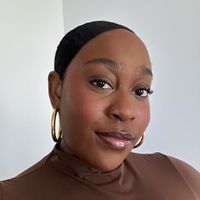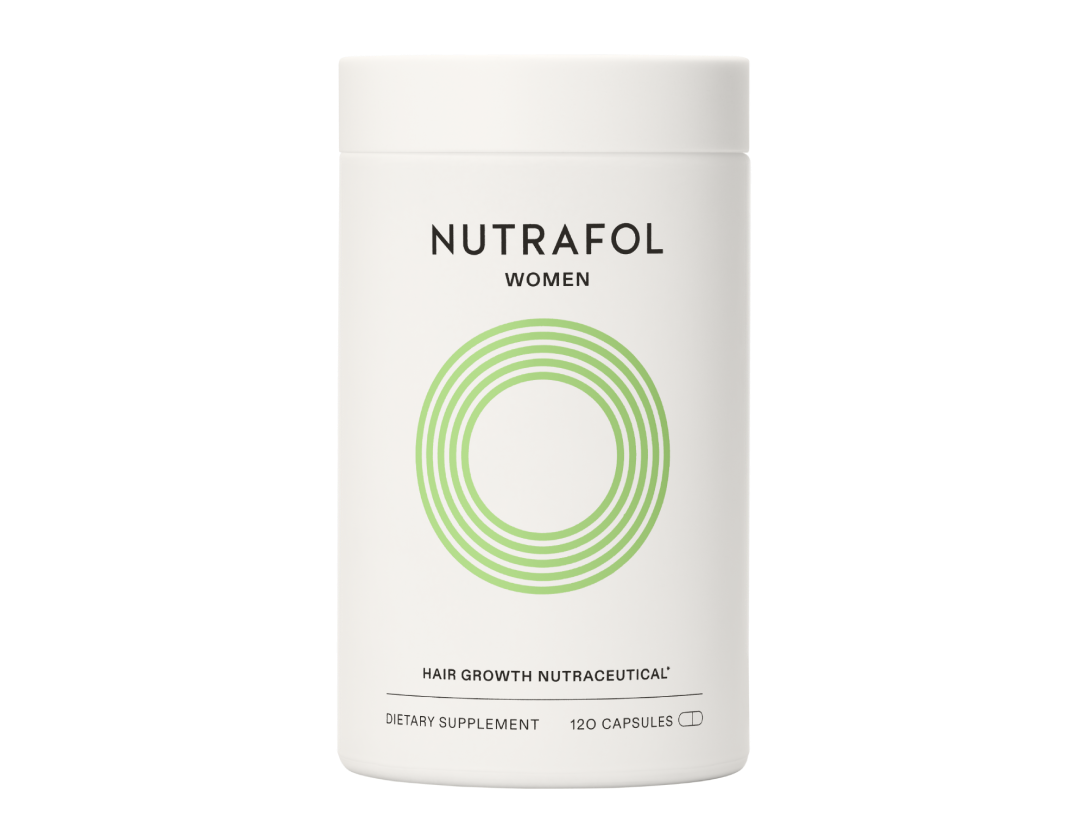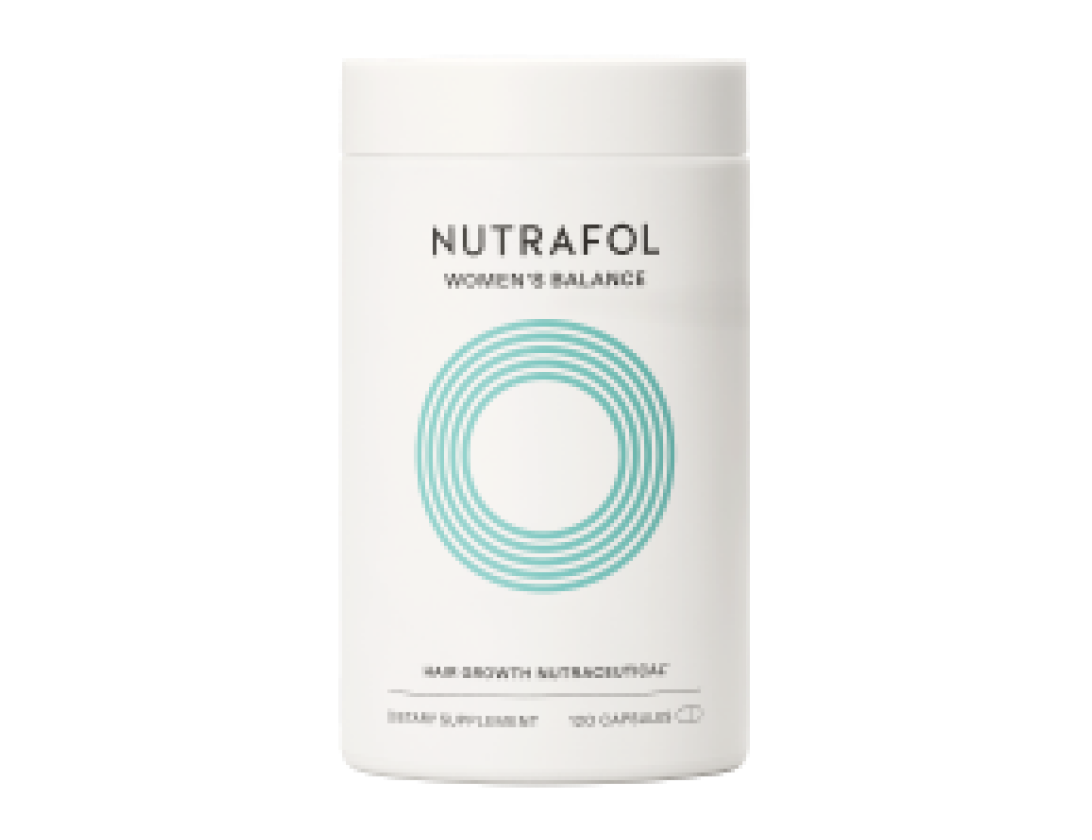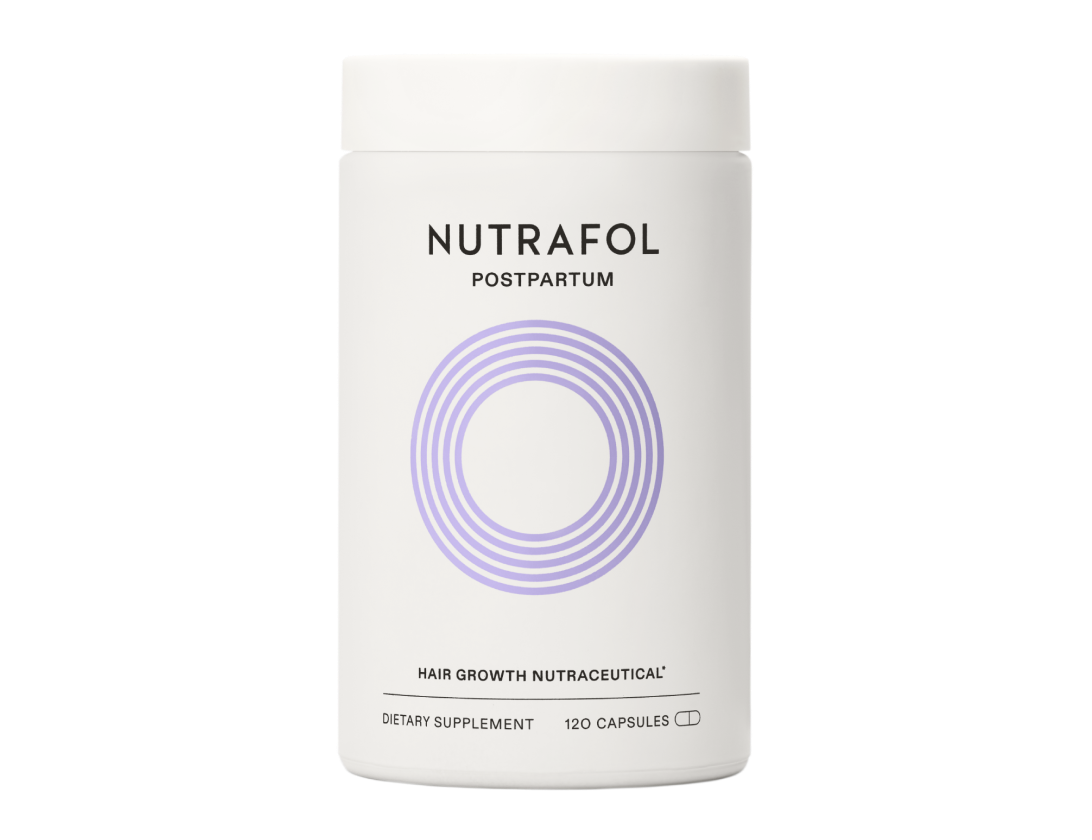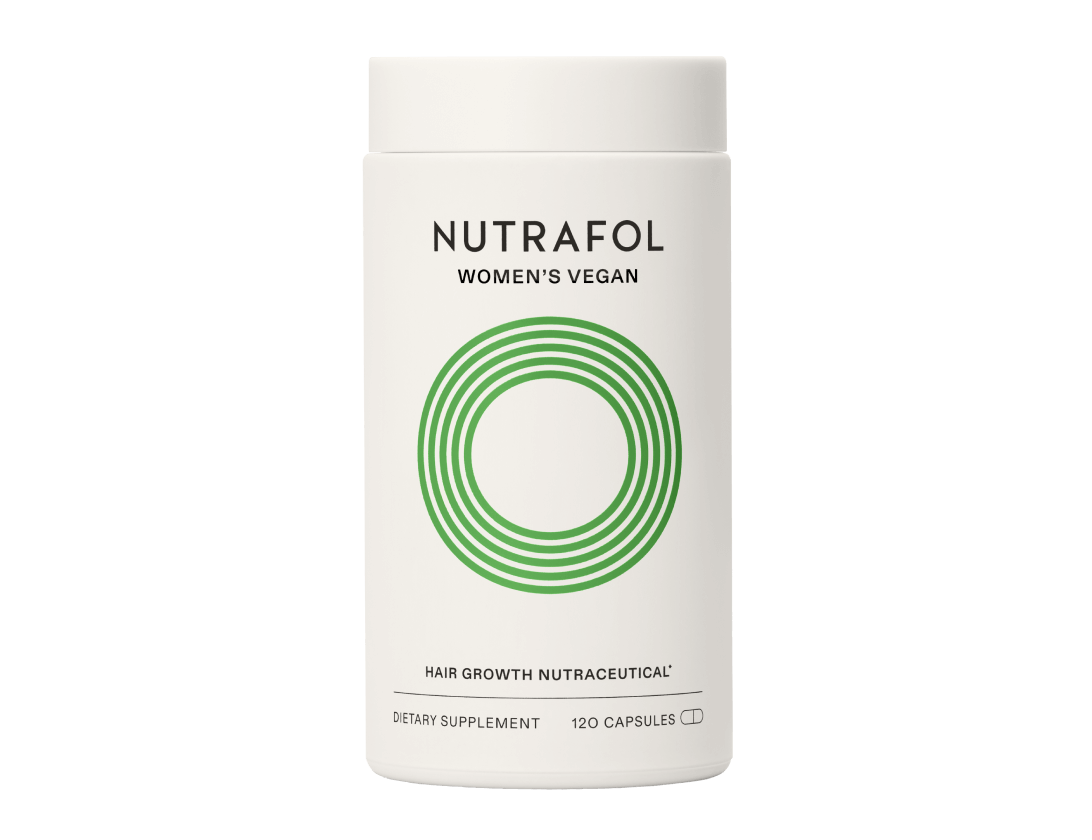Sponsor Content Created With Nutrafol
What They Don't Tell You About Hair Thinning
The more you know.
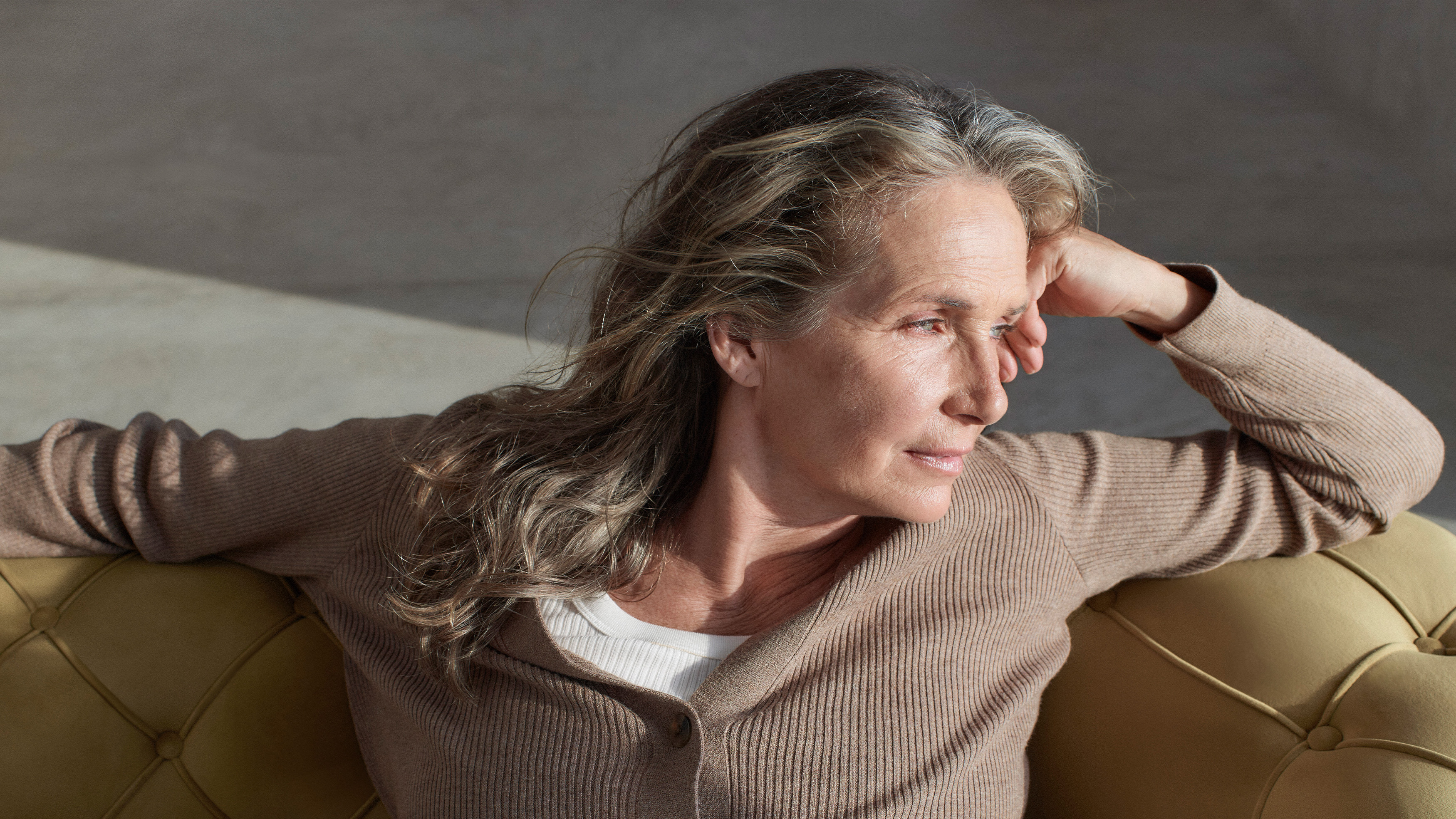
One of the hardest parts about aging is seeing how much your body changes. As you get older, even the slightest shifts in appearance can make you feel like you woke up in a completely different body. Although many people expect changes in their skin or weight, one of the most unexpected changes women experience is hair thinning and shedding. But you can breathe a sigh of relief—this is normal. After age 40, women often experience hair thinning not only due to aging, but also stress, nutrition, hormones, metabolism, and lifestyle. It can be difficult to pinpoint what's causing your hair to shift so drastically, but Nutrafol—AKA the #1 dermatologist-recommended hair growth supplement brand*—has four formulas that target key root causes of hair thinning, supporting your hair's evolving needs as you move through menopause, postpartum, and other physical changes as you age.
Unlike other supplements on the market, Nutrafol brings a new level of clinical accuracy to an industry that tends to rely on perception and single-ingredient studies. Isabelle Raymond, Ph.D., SVP of clinical and medical affairs at Nutrafol, explains that the brand takes a holistic approach to its physician-formulated, clinically tested supplements. Marie Claire chatted with Dr. Raymond to learn more about women's hair health and everything Nutrafol is doing to support it. Keep reading to see why these supplements deserve a spot on your shelf.
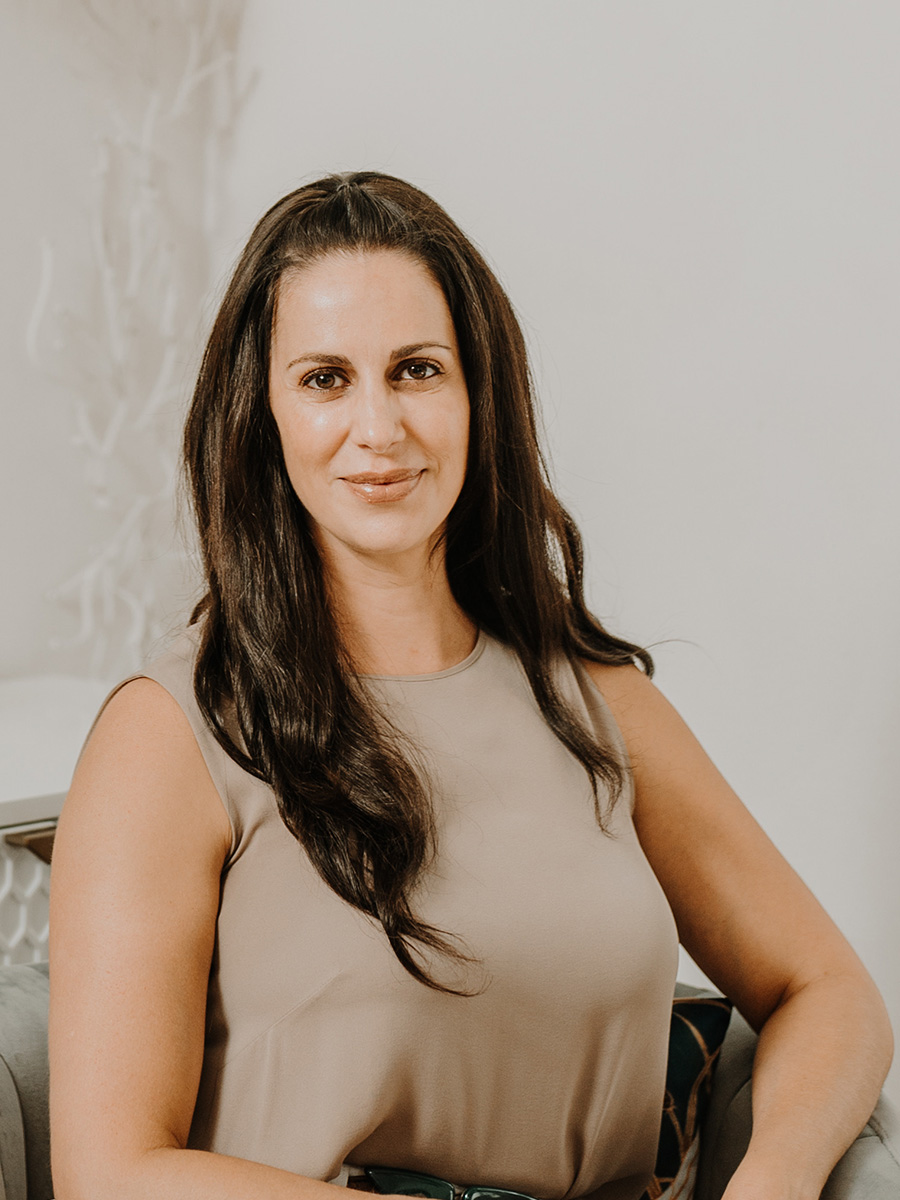
Marie Claire: Before stepping into your current role, you had some skepticism about the supplement industry. Can you share how you worked through that?
Dr. Isabelle Raymond: The supplement industry is perceived as the "Wild West," and oftentimes comes with controversy. While the FDA regulates the supplement industry reactively, supplement companies aren't required to show clinical efficacy. You don't have to have studies on the final formulation of your product. I joined a company that has done so much to hold itself to the highest standards from day one. They committed to strong scientific reasoning, clinically tested ingredients, and clinical studies on the final formulation. It was an opportunity to create a large clinical program similar to what I had done prior.
MC: You've transitioned from the pharmaceutical and biotech industries into beauty and wellness. What has the journey been like and what inspired the transition?
IR: I'd been working in the field of dermatology, which specializes in all things skin, but also nails and hair, so I had background in the industry. I'd done studies in both medical and cosmetic dermatology, and the latter somewhat overlaps with the beauty industry. I saw it as a challenge on how I could bring more scientific and clinical credibility to the supplement industry.
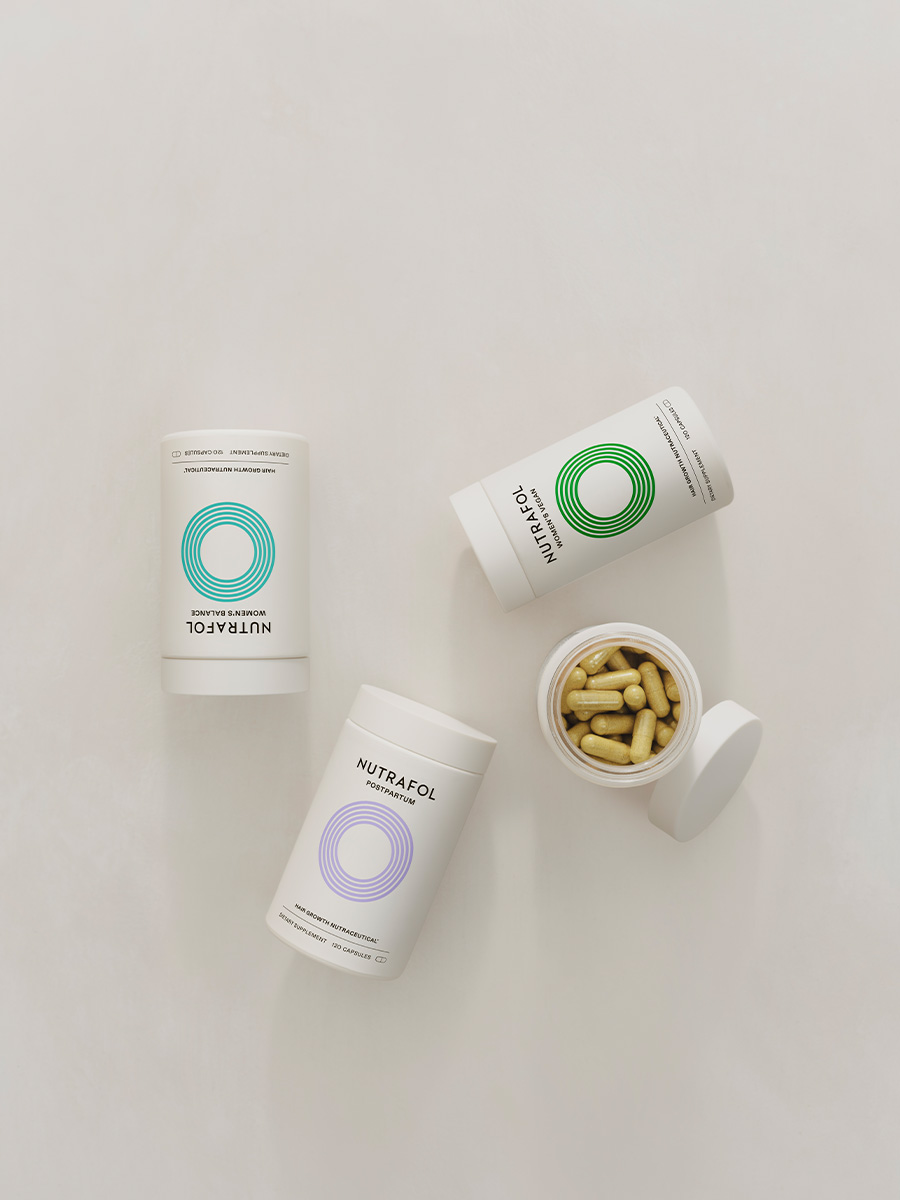
MC: You lead rigorous clinical testing processes and oversee medical research publications in your field. What are some green flags you look for when conducting these tests?
IR: For Nutrafol, clinical testing isn't optional—it's our standard. The best studies are ones in which the supplement is compared to a placebo and are double-blind, meaning the subject and the investigator don't know who is taking what. These are considered the "gold standard" of clinical research, but very few supplement companies actually perform these on their product.
The population that is studied is also very important because you want to make sure that you see results in the population [the supplement is] intended for. So our product for menopausal women is studied in women going through menopause and beyond. We also do multiple studies to include diverse groups of people, because we want everyone to see themselves in our results.
You should also look for studies completed on final formulas and not just single ingredients, and studies that have been published by peer-reviewed journals. That means that the study is reviewed by other scientists, researchers, or doctors to determine if it presents a reasonable level of evidence to support that the results are actually meaningful.

MC: Hair changes can be an unexpected part of aging. What is biologically impacting it?
IR: Just like your body, your hair changes throughout your life. As you're aging, you're experiencing different levels of stress, your hormones are fluctuating, you're losing collagen, your diet may be changing, your metabolism slows—and all of this can impact your hair. In fact, statistics show that by age 50 at least 50% of women experience hair thinning1. Your hair can also be affected by factors like DNA damage over time, oxygen free radicals generated by UV radiation, or air pollution. Plus, sebum production decreases after menopause, which can result in hair dryness.
MC: There's a large gap in women's health, as many of the issues we face are overlooked and under-researched. Can you tell me more about this gap and Nutrafol's role in bridging it?
IR: Nutrafol is committed to destigmatizing hair thinning, but also empowering women with education and bringing more visibility to health changes that impact them. On a personal level, I didn't expect to be caught off guard by menopause. Although I knew about the typical symptoms of perimenopause, living through them was a completely different experience. My mission as a woman, as a clinician, and as an advocate is to help ensure that no one feels unprepared, lost, and alone like I did. We've conducted research on women through various ages, women who are postpartum, and even those living a plant-based lifestyle. We're the first hair growth supplement brand to have clinical studies on women with menopausal hair thinning. All of this is to better understand what's behind hair thinning at different life stages, ensuring our tailored hair growth supplements deliver real results.
*According to IQVIA ProVoice survey for 12 months ending March 31, 2024.
1. Ramos PM, Miot HA. An Bras Dermatol. 2015;90(4):529-543, Gan DC, Sinclair RD. J Investig Dermatol Symp Proc. 2005;10(3):184-189. Dinh QQ, Sinclair R. Clinical Interventions in Aging 2007:2(2) 189–199., Chaikittisilpa, S et al. Menopause, 2022:29(4):415-420.
These statements have not been evaluated by the Food and Drug Administration. This product is not intended to diagnose, treat, cure or prevent any disease.
Get exclusive access to fashion and beauty trends, hot-off-the-press celebrity news, and more.
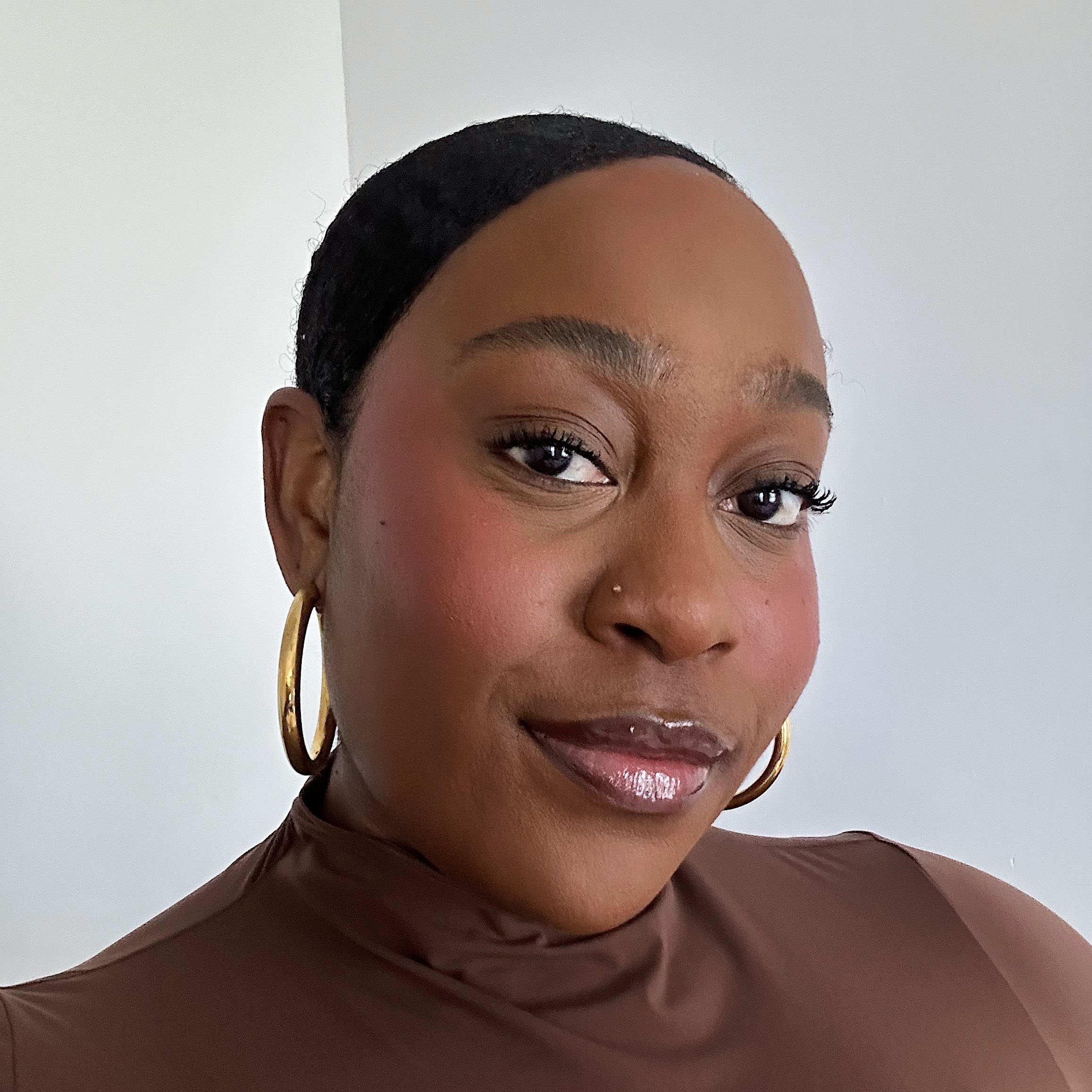
-
 Monica Barbaro and Andrew Garfield Match at Wimbledon
Monica Barbaro and Andrew Garfield Match at WimbledonThe couple's coordinated outfits were a nod to the tennis tournament's all-white dress code.
-
 Prince George Might Be "Initiated Into" Royal "Ritual"
Prince George Might Be "Initiated Into" Royal "Ritual""The Palace has refused to comment."
-
 Meghan Markle Hosts Cocktail Hour in Tapestry Knit Matching Set
Meghan Markle Hosts Cocktail Hour in Tapestry Knit Matching SetThe Duchess of Sussex also wore one of her late mother-in-law's prized watches.
